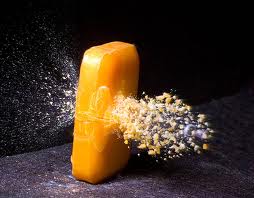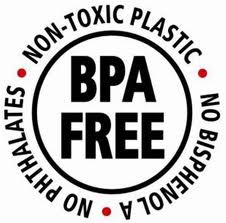 We’re working with Kent State University, the Environmental Protection Agency (EPA), the U.S. Occupational Safety and Health Administration (OSHA), and other non-governmental, non-profit organizations like Greenpeace to provide you information to protect you and your family from toxic chemicals in your environment.
We’re working with Kent State University, the Environmental Protection Agency (EPA), the U.S. Occupational Safety and Health Administration (OSHA), and other non-governmental, non-profit organizations like Greenpeace to provide you information to protect you and your family from toxic chemicals in your environment.
This is the second article, in the series of articles for the next few weeks, pertaining to the Healthy Habits Detox Plan.
The sad truth is that there may be a number of toxic chemicals in your home.
Chemicals like bisphenol A (BPA) are in water bottles, food can linings, DVDs and CDs, baby bottles, and receipt paper.
BPA is an endocrine disruptor and can be found in 9 out of 10 Americans’ bodies.
Recent research suggests chemicals found in products we use everyday contribute to infertility and other health problems.
With even small doses, BPA can damage the reproductive tract in humans.
Avoid These Toxins in Your Home
The following are a number of other toxic dangers in our homes that scientist have found to cause fertility problems and long-term damage.
Antibacterial Soaps
 Some antibacterial soaps and toothpastes contain a chemical called triclosan which is considered to disturb thyroid functions and hormone levels in people.
Some antibacterial soaps and toothpastes contain a chemical called triclosan which is considered to disturb thyroid functions and hormone levels in people.
Experts in health suggest that overuse of antibacterial soap causes the promotion of bacteria resistant to antibacterial treatment.
If you prefer using antibacterial soap, verify that the soap does not contain triclosan, triclocarbon, or other chemicals like antimicrobial or antibacterial on the label.
A Better Alternative: A better alternative is to use regular soap with warm water to kill germs.
Synthetic Fragrances
One of the most common types of chemicals in the house is synthetic fragrances used in air fresheners, shampoos, scented candles, dryer sheets, fabric softeners, laundry detergents, perfumes, cleaning supplies, disinfectants, hair sprays, and gel lotions.
 Many of these products contain carcinogens, reproductive toxicants, and endocrine disruptors.
Many of these products contain carcinogens, reproductive toxicants, and endocrine disruptors.
The best alternative to these products is using unscented consumables when possible, especially detergents and soaps.
Doctors suggest avoiding air fresheners, oils, solid disks, and deodorizers because they do not disinfect or clean the air—they add hazardous chemicals to the air we breathe.
Using baking soda or better ventilation is a better, healthy habits alternative.
Placing a bowl of white vinegar in a room is also a great alternative to remove unpleasant smells in a room.
Canned Food
 Though convenient and easy to store, canned-food containers and some No. 7 plastic bottles include the chemical bisphenol A, a hormone disrupting chemical that’s linked to diabetes, heart disease, aggressive behavior in children, and male infertility.
Though convenient and easy to store, canned-food containers and some No. 7 plastic bottles include the chemical bisphenol A, a hormone disrupting chemical that’s linked to diabetes, heart disease, aggressive behavior in children, and male infertility.
BPA is also found in cash receipts from ATMs and gas stations; in some cases the amount of BPA on some receipts are 1,000 times higher than in the lining of metal cans.
Better options are to avoid canned vegetables and fruits and purchase fresh or frozen goods.
In addition, don’t store beverages and food in plastic containers.
As far as cash receipts, avoid getting receipts for small purchases of gas, food, coffee, gas, and ATM transactions.
In the following weeks we’ll be providing more vital information pertaining to toxic chemicals.
Join in and inspire action by sharing your thoughts and concerns!
George,
What a great article! Thanks for warning us on what we should look for when purchasing products and also what we should avoid.
Thanks again,
Tina
Thank you as well, Tina! Stay aware…